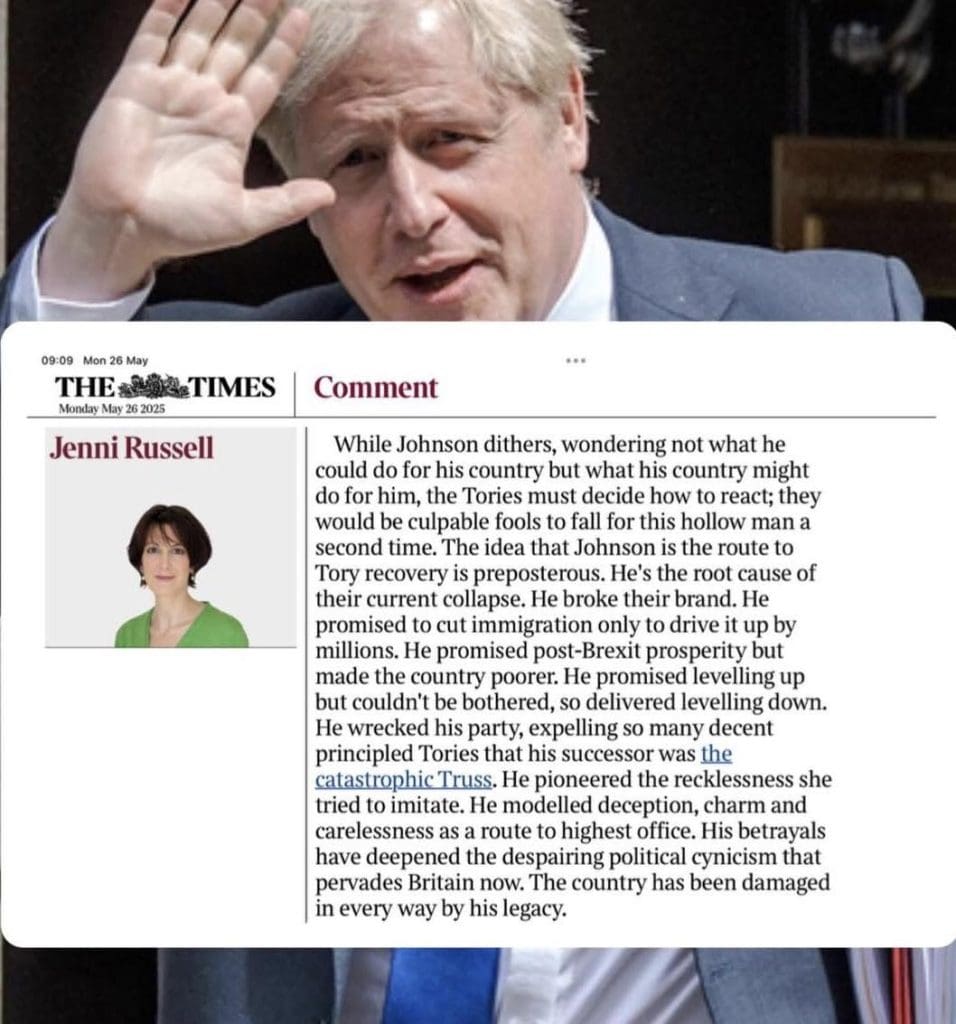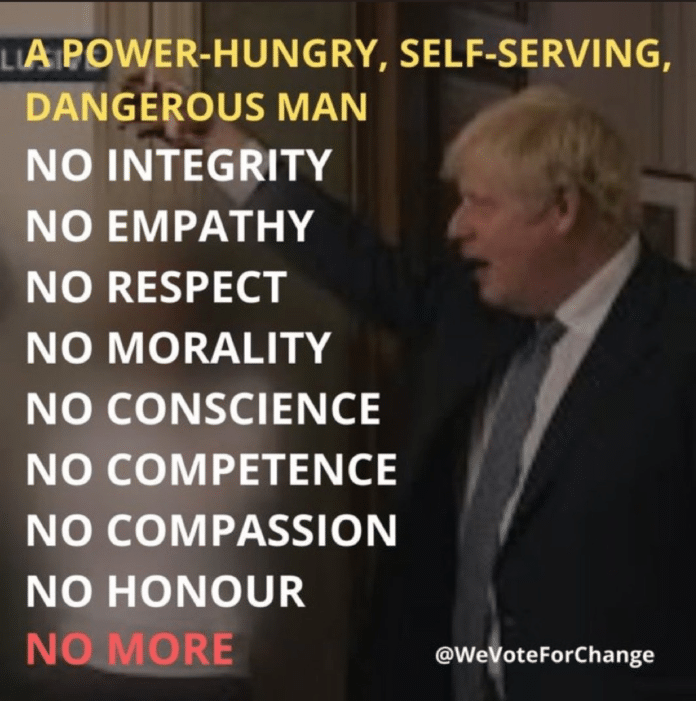In yesterday’s edition of The Times, this:

And yet long before Boris Johnson became a household name as prime minister, a number of independent media outlets were sounding the alarm. While the mainstream press often indulged his buffoonish persona and brushed off controversies, independent platforms like Dorset Eye, The Canary, Byline Times, Skwawkbox, Vox Political, and Novara Media, among others, were issuing stark warnings about his character, track record, and suitability for public office.
The Early Red Flags
Back in the 2010s, when Johnson was still Mayor of London, Dorset Eye ran several articles drawing attention to his dangerous blend of charm and recklessness. Far from the harmless clown often depicted by the BBC and right-leaning newspapers, Johnson was portrayed by independent journalists as a political opportunist with a loose relationship with the truth.
One article, published in Dorset Eye in 2013, dissected Johnson’s handling of the London housing crisis, highlighting his close ties to property developers and the aggressive gentrification of working-class communities. While mainstream outlets applauded his “vision for London”, Dorset Eye warned of the social cleansing unfolding behind the scenes.
Brexit and the Weaponisation of Misinformation
During the 2016 EU referendum campaign, Johnson fronted the Vote Leave campaign, notoriously claiming that the UK sent £350 million a week to the EU – a figure widely debunked. Independent media outlets were among the first to call this out as a deliberate lie.
The Canary and Byline Times, alongside Dorset Eye, ran several investigations and opinion pieces showing how Johnson manipulated facts and appealed to nationalism for personal political gain. Their warnings about the long-term implications of such dishonesty were largely ignored at the time.
A Pattern of Misconduct
When Johnson became Foreign Secretary, independent outlets continued to catalogue his gaffes and blunders. From making inflammatory comments about Libya to endangering British-Iranian citizen Nazanin Zaghari-Ratcliffe with careless remarks, his incompetence was laid bare.
Dorset Eye specifically warned that Johnson’s behaviour was not harmless but dangerously unfit for diplomatic office. In a 2017 feature, the publication described him as “a man who treats global diplomacy like a university debating society – with none of the accountability and all of the arrogance.”
The Prime Ministership: An Avoidable Catastrophe?
By the time Johnson rose to power in 2019, many independent media outlets were exhausted from years of warnings falling on deaf ears. While the mainstream press fixated on Brexit slogans and “getting it done,” alternative voices scrutinised his campaign finances, connections to hedge funds, and cronyism.
During the COVID-19 pandemic, Dorset Eye was among those tracking the government’s mismanagement, procurement scandals, and disregard for public health messaging. The publication consistently challenged the government’s narrative and called out Johnson’s evasions during daily briefings and parliamentary sessions.
Legacy of Lies
Now, as even mainstream commentators reflect on Johnson’s legacy with growing cynicism, independent media can credibly claim, “We told you so.”
Their warnings about his lies, laziness, racism, and disregard for the truth are now part of the public record – but only because they refused to look away while others were dazzled by his act.
In summary, the role of independent media in a democracy is crucial, not just as a counterbalance, but often as the first line of defence. While Boris Johnson may have fooled many, he didn’t fool everyone. Outlets like Dorset Eye saw through the mask, and their prescience should be a wake-up call: next time, we should listen.







